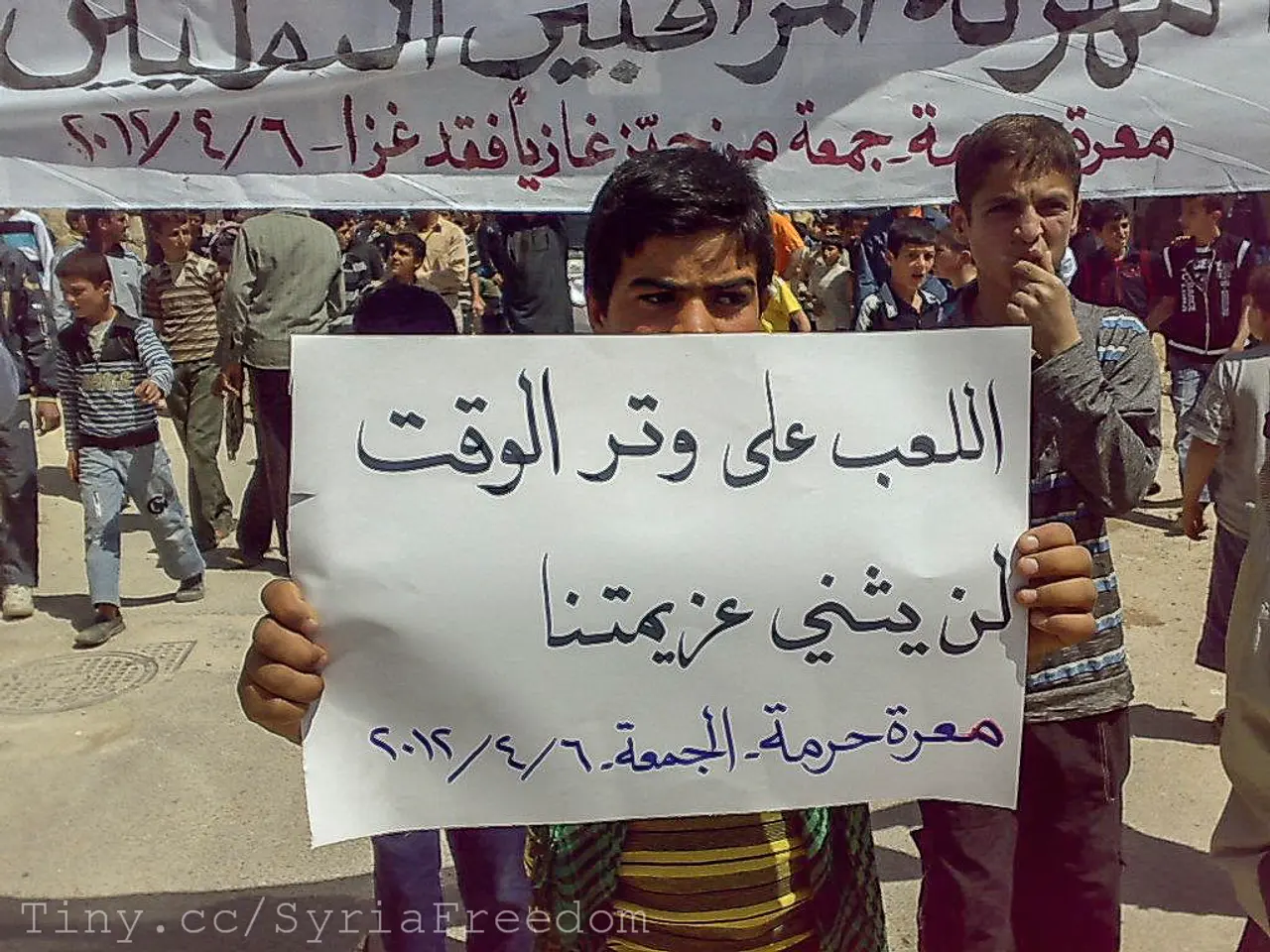International cooperation, particularly under the ASEAN umbrella, can be pivotal in tackling the easier climate change solutions. However, a major overhaul is needed in the global financial system, according to a global affairs expert.
ASEAN Leads the Climate Transition, but Needs Global North Support
ASEAN, poised to become the world's fourth largest economy by the end of the decade, is taking a leading role in the climate transition. The region is focusing on developing climate-resilient infrastructure and promoting clean energy solutions, contributing to its climate and sustainable development goals[1][3].
However, ASEAN countries emphasize that achieving sustainability targets is unrealistic without the promised financial commitments from the Global North. The Global North, which includes many industrialized economies, has not delivered the promised climate finance as much as expected[1]. Under the Paris Agreement, the Global North is expected to provide climate finance for both mitigation (reducing emissions) and adaptation (coping with climate impacts). The pledged US$100 billion annually by 2020 has not been met, causing financial stress and "fatigue" in developing economies[1].
ASEAN leaders, including Malaysian policymakers, advocate for the reconstitution of the global climate finance architecture—a systemic reform to improve delivery, transparency, and scale of climate funding to the Global South. This reform should facilitate stronger capital investments without compromising social equity or business interests[1].
The Asian Development Bank (ADB) states that every $1 invested in climate adaptation can yield approximately $4 in avoided losses or economic savings[2]. Failure to prioritize adaptation could lead to economic losses exceeding $1 trillion annually across Asia by 2050 due to climate-driven disasters[2]. A key recommendation is for ASEAN to develop a framework for climate-resilient infrastructure investment.
ASEAN's expectations from the Global North include:
- Fulfillment of pledged climate finance to support both mitigation and adaptation initiatives.
- Reform of climate finance architecture to ensure transparency, predictability, and adequacy of funding.
- Support for clean energy transitions through technical and financial assistance.
- Recognition of shared but differentiated responsibilities, acknowledging ASEAN’s growing economic role yet ongoing financial constraints[1][4][5].
Asean is also strengthening coordination and policy coherence in responding to shifting geopolitical headwinds, particularly where business and sustainability policy intersect. Balancing the "inequities" between the US and China is important for ASEan, and Malaysia, as well as other ASEAN nations, should strategically look to diversify their dependencies[5].
Under the Trump administration, the US has intensified efforts to cut climate funding and expand fossil fuel development. However, the US has recently lowered its reciprocal tariff rate for Southeast Asian nations, including Malaysia, Indonesia, Cambodia, Vietnam, and Thailand, to about 19%[5].
ASEAN member states, including Indonesia, Malaysia, Thailand, and Myanmar, are affiliated with Brics. Under Malaysia's leadership, initiatives like the National Energy Transition Roadmap (NETR) and progress made on the Asean Power Grid offer promising pathways to address Southeast Asia's urgent energy transition challenges[3].
Dr Faiz, chairman and CEO of ISIS Malaysia, stated that ASEAN cannot prioritize sustainable development without adequate climate financing from the Global North. Pushing developing nations to meet sustainability targets without first delivering the promised climate finance is unjust and unrealistic, according to Dr Faiz[3]. Dr Faiz also called for ASEAN member states to take "more principled stands" when dealing with superpowers and not capitulate to the "backyard bully"[4].
In summary, ASEAN seeks to lead the region’s climate transition practically and inclusively but requires the Global North to uphold and enhance its climate finance commitments within a reconstituted global financial system to enable successful sustainable development outcomes.
- ASEAN is promoting clean energy solutions and developing climate-resilient infrastructure as part of its net zero objectives, contributing to its climate and sustainable development goals.
- Achieving ASEAN's sustainability targets depends on the financial commitments from the Global North, which has not delivered the promised climate finance as much as expected.
- The reconstitution of the global climate finance architecture is advocated by ASEAN leaders to improve the delivery, transparency, and scale of climate funding to the Global South.
- Every dollar invested in climate adaptation in ASEAN can yield around four times that amount in avoided losses or economic savings, as stated by the Asian Development Bank.
- Failure to prioritize adaptation could lead to economic losses exceeding $1 trillion annually across Asia by 2050 due to climate-driven disasters.
- ASEAN is strengthening coordination and policy coherence in responding to shifting geopolitical headwinds, particularly in balancing the overtures of major powers like the US and China.
- Dr Faiz, a prominent figure in environmental-science and policy-and-legislation, underscored that ASEAN cannot prioritize sustainable development without adequate climate financing from the Global North, and called for ASEAN member states to take "more principled stands" when dealing with influential powers.







